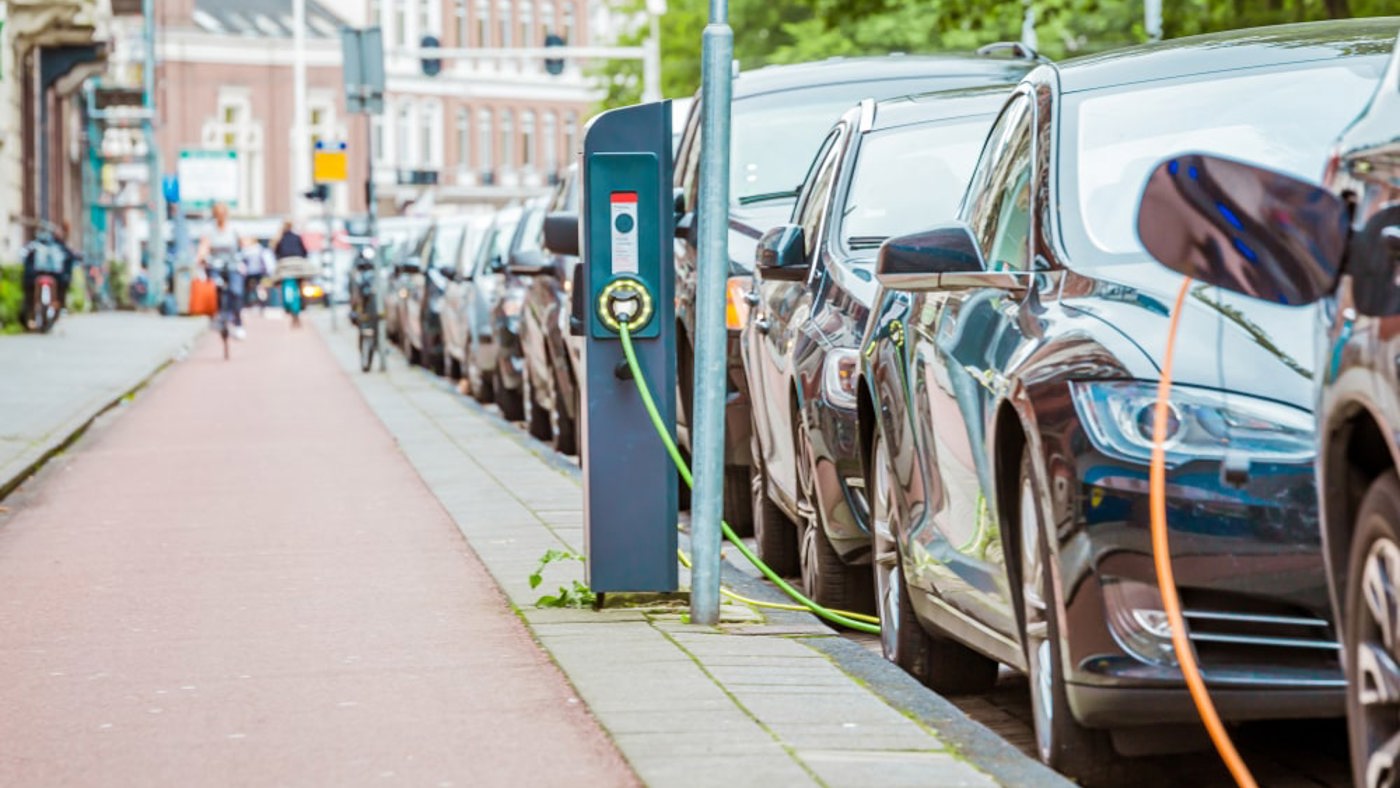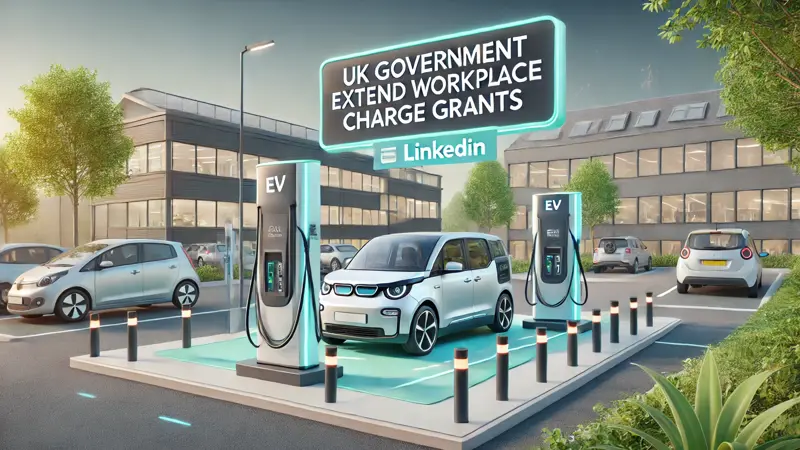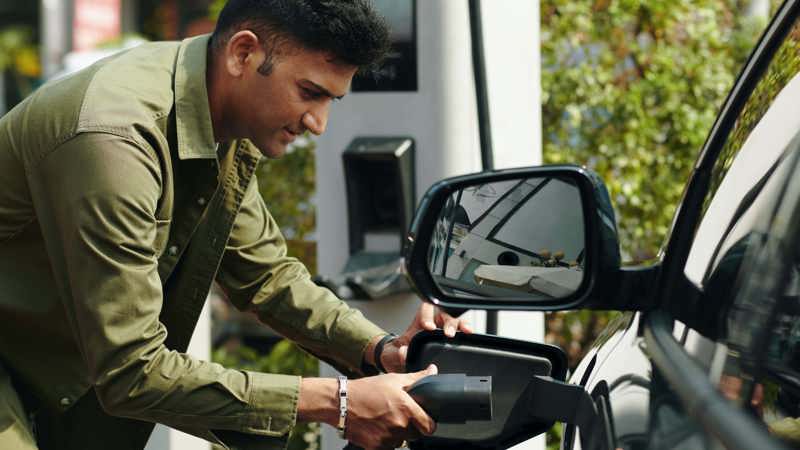
EV News Round-Up: Charge Point Grant, and £16 Billion pothole plague
UK Government Extends EV Chargepoint Grant to Include On-Street Parking
The UK Government has announced an extension of the EV Chargepoint Grant to include on-street parking as part of its £381 million Local Electric Vehicle (LEVI) fund to councils. An additional 44 councils will now be approved to help residents charge their EVs, worth over £185m.
The news was revealed during a series of infrastructure announcements made by the Department for Transport (DfT) last week in moves aimed at bolstering EV infrastructure accessibility. These latest guidelines are part of the Government’s new ‘Plan for Drivers’ and extends the grant to those who have access to “adequate” on-street parking.
It is the first time this group will gain access to the EV Charge Point Grant. And is currently open until 31 March 2025.
£350 will now be available, covering up to 75% of the costs for purchasing and installing a charge point. The approval means that those who own or rent homes with adequate street parking can benefit from home EV charging, estimated to be up to 20 times cheaper than public charging.
EV drivers will require landlord approval (if applicable) and will need to apply online for their local council's permission to install a cross-pavement charging solution.
This broadening of Grant schemes for home charging is likely to be very welcome news to the estimated 30% of UK households with no access to off-street parking. For whom this lack of incentive has been considered by many as a crucial barrier to EV adoption for a significant number of UK drivers.
And it's not only good news for private EV drivers, but great news for fleets looking to transition to EVs too, as a wider pool of drivers will be able to charge from home, taking advantage of cheaper (typically night-time) tariffs.
As covered in FleetNews, David Watts, fleet product manager for EVs at Volkswagen Financial Services said “This will not only reduce fleet operating costs by decreasing reliance on the public charging network, but it will also reduce the number of times drivers without access to home charging need to stop during the working day to recharge.”
“The extension of the grant will undoubtedly support fleets efforts to incentivise driver adoption of EVs to support business sustainability ambitions.”
EV Progress Report Predicts Rise to 1.24 Million EVs During 2024
Lloyds Banking Group’s second ‘Future of Transport’ Index, published last week examines the UK's EV market successes and challenges.
It predicts a significant surge in EV adoption happening this year with the report forecasts showing the number of EVs on UK roads is projected to increase to 1.24 million during 2024. That’s up from 978,387 in 2023 according to Zapmap’s EV market stats 2024 report.
The report highlights the UK having already reached such milestones as 50,000 charge points installed, and a million EVs on the roads. Perhaps it's these achievements that prompted approximately one-third of the 1,214 private drivers surveyed to say they are more likely to switch to electric this year compared to last.
Unsurprisingly, the biggest takeaway from the report appears to be that cost is at the heart of a decision to switch, or not to switch, to EV.
60% of participants cited the expense of an EV as the main factor preventing them from switching. More than half mentioned the availability of charging points as a major factor, with just over 40% pointing towards logistics and the cost of installing charging infrastructure at home.
The report concludes with recommendations for prioritising rapid charging infrastructure, and a need to address the disparity commonly discussed as ‘pavement tax’, meaning anyone using public charging pays 20% VAT on electricity, compared with 5% for charging at home. An issue widely covered and discussed, and most recently sent in an open letter to the government from FairCharge and EV industry members ahead of the 2024 Spring Budget.
Motoring Groups Refute Claims Linking EV Weight to UK's £16 Billion Pothole Woes
The state of UK roads has sparked a debate this week over whether or not heavier EVs are to blame for the £16 billion pothole ‘crisis’ being described as ‘Britain’s pothole plague’.
The most recent Annual Local Authority Road Maintenance (ALARM) survey report by the Asphalt Industry Alliance (AIA) reveals concerning findings about the state of England and Wales' local road network.
Over 50% of roads are estimated to have less than 15 years of structural life remaining. The cost required to address the backlog of carriageway repairs has risen £2 billion, or 16% on last year, up to an all-time high of £16.3 billion.
The report by the trade body points to 'increased average vehicle weights on a deteriorating network' which has been picked up by some to claim it's down to the more than 1 million EVs now on UK roads and that they cause twice as much stress on tarmac because they outweigh ICE equivalents.
But the AIA said the shift towards online shopping means more heavier vans and delivery trucks are on the roads too. Other factors fuelling the crisis, according to its report, are the increased frequency of extreme weather, more traffic and the impact of rampant inflation which has caused the average cost of filling a pothole to rise 9% to £72.26.
Motoring experts have refuted claims that EVs are to blame for the poor quality of the UK’s roads.
Transport and Energy reported RAC’s Head of Policy Simon Williams saying “A long-term lack of investment in local roads from central government is unquestionably the cause as this has led to a 45% reduction in maintenance carried out by councils in England in the last five years alone. Any attempt to say the weight of EVs is responsible for a decline in the quality of our roads is a distraction from the reality that our roads have been neglected for too long.”
While Quentin Willson, motoring broadcaster and Founder of FairCharge, comments “What about all the vans, trucks, fuel tankers, car transporters and 44-tonne HGVs – not to mention all the two-tonne SUVs? EVs are definitely not the heaviest vehicles on our roads by a massive margin. This is just another nonsensical EV myth.”
And Colin Walker, Head of Transport at the Energy & Climate Intelligence Unit, said “Attempts to pin the blame for the UK’s pothole problems on electric vehicles shows that media misinformation about EVs isn’t going away. Wouldn’t it be better if our media used its influence to help its readers access the benefits and savings that come from EV ownership? After all, EVs can save their owners as much as £1,300 a year to run – handy savings in the midst of a cost of living crisis.”
Bentley’s First EV Launch Delayed Due to Supply Chain Issues
In EV manufacturing news this week is Bentley, the renowned luxury carmaker, who has announced delays in the release of its first EV.
Originally scheduled for a debut in 2025, the EV launch has been pushed back amid concerns over the availability of key components. The company cited supply chain challenges and the global semiconductor shortage as contributing factors to the postponement.
Despite the setback, Bentley remains committed to its electrification strategy and confirmed plans for its manufacturing line to go fully electric within years. Speaking on the company's latest financial results call the luxury marques CEO Adrian Hallmark confirmed a strong year in 2023 with revenue topping £2.5 billion - the company's second-best performance ever. In a show of commitment to the long-term strategy of electric transformation Hallmark said:
"There’s no question that BEVs are where we will all head.”


